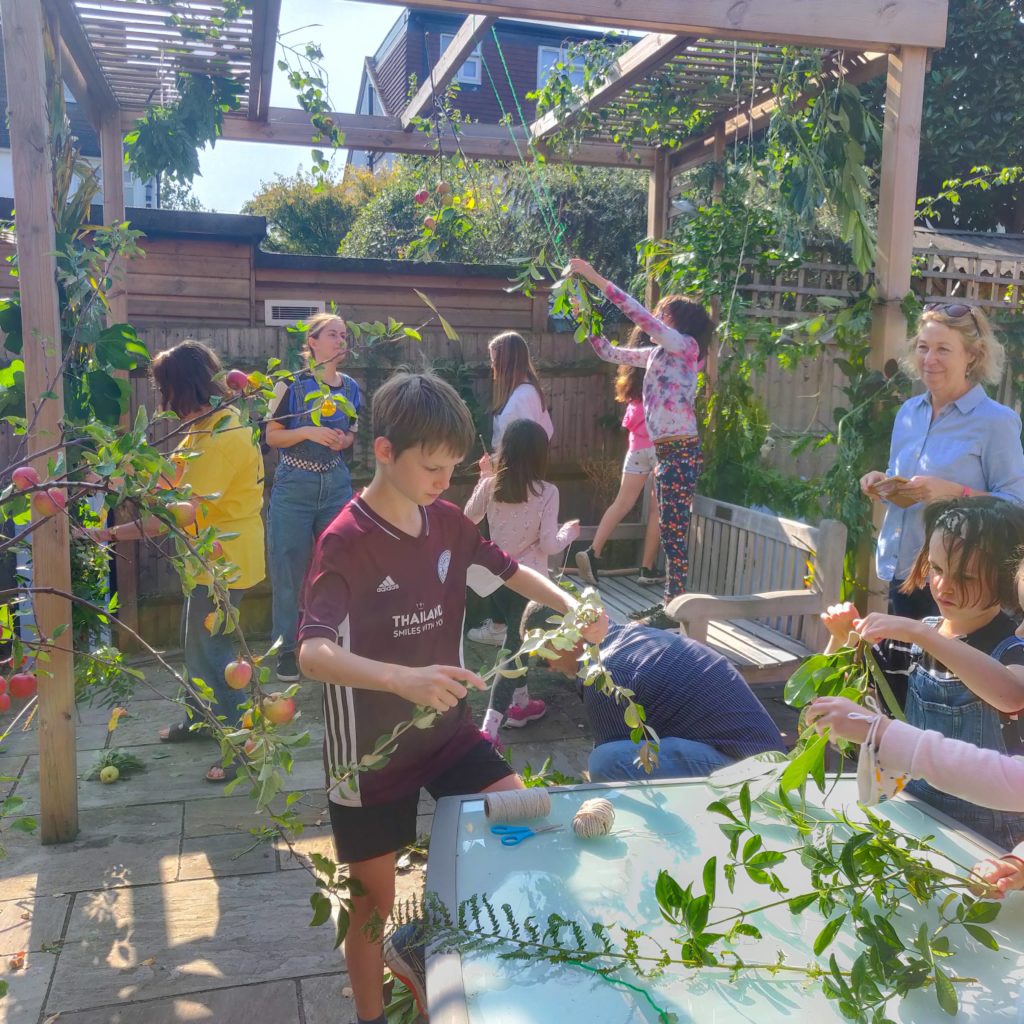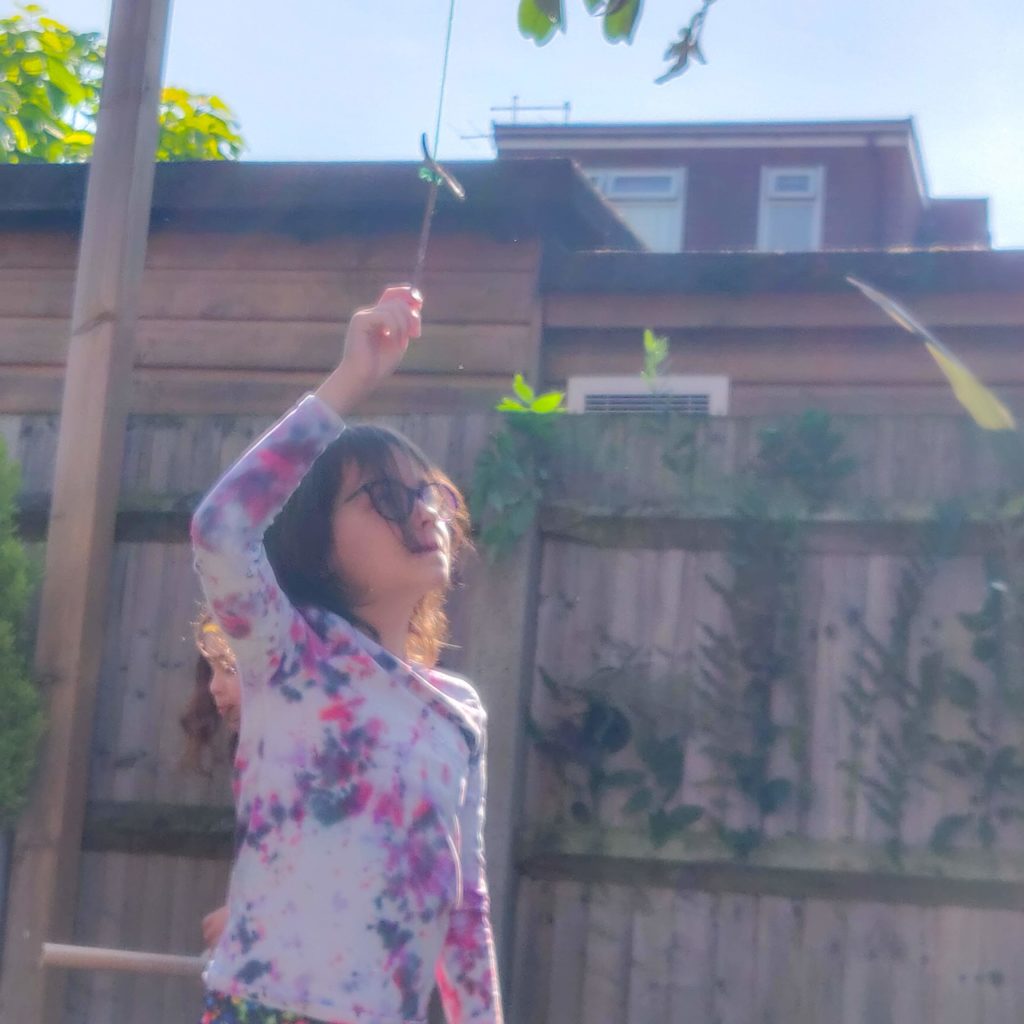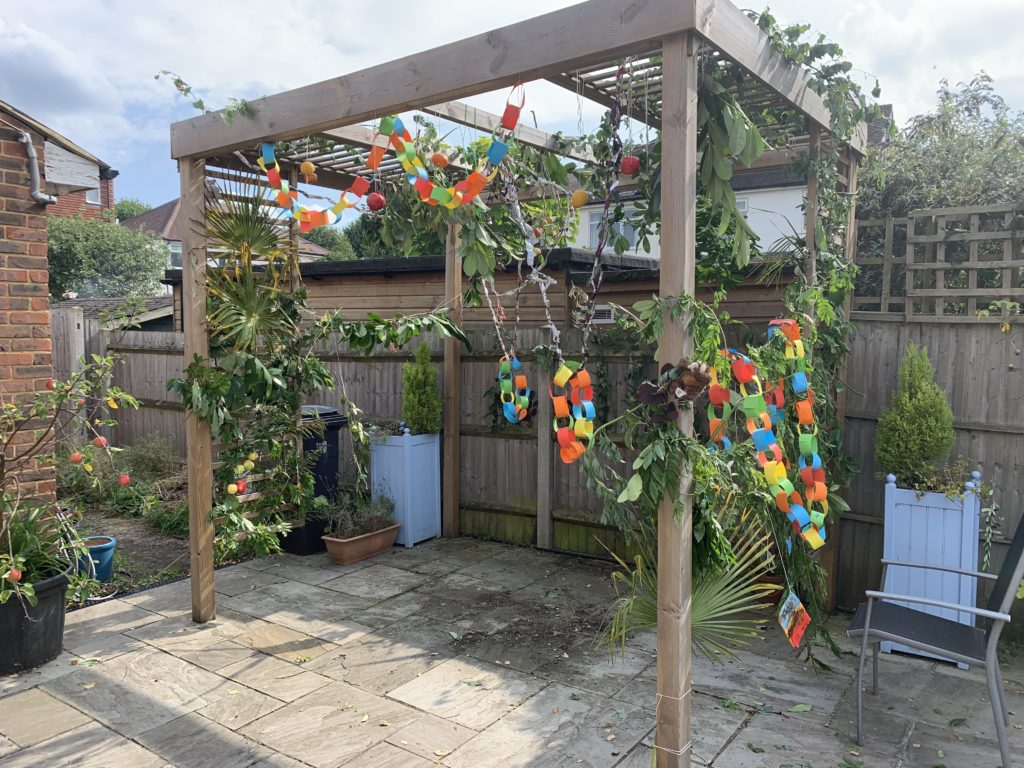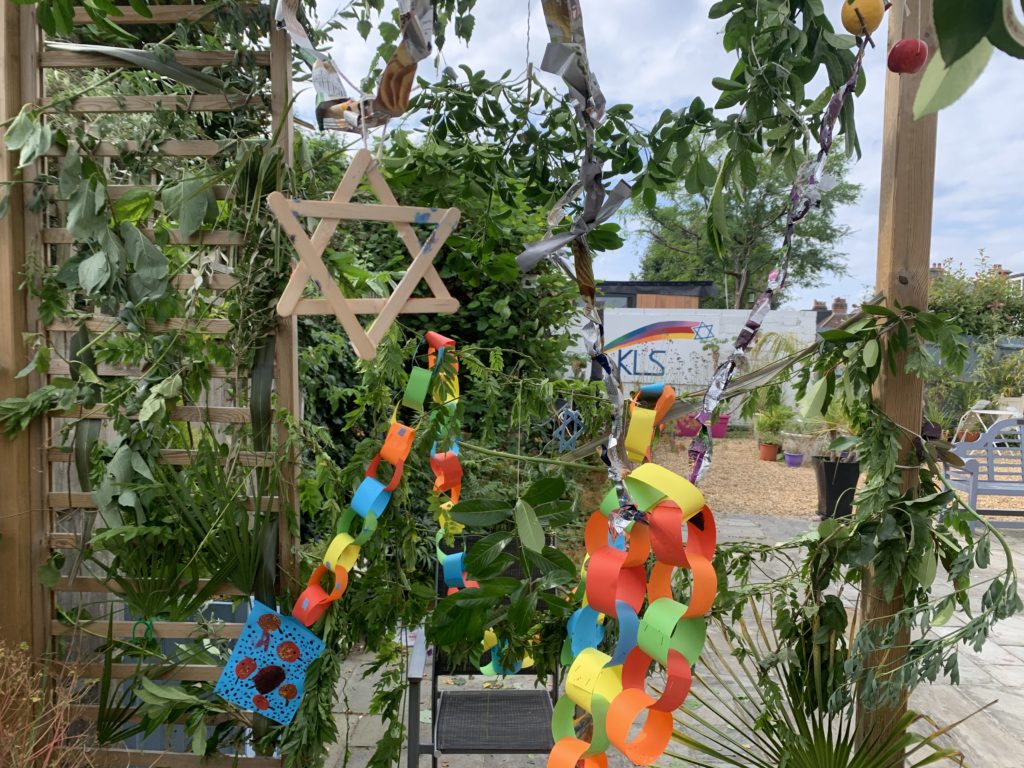Rabbi René’s sermon for Sukkah 5782
You may be familiar with this saying attributed to Rabbi Nachman of Breslov, mitzvah gedolah li’hiyot be-simcha tamid, “It is a great mitzvah to live in a state of happiness” (Likutei Maharan 2: 24). Rabbi Nachman explains that the very act of serving our Creator by heeding to God’s voice is in itself a source of endless joy and happiness. It is the sign of a life that is lived in its fullest.
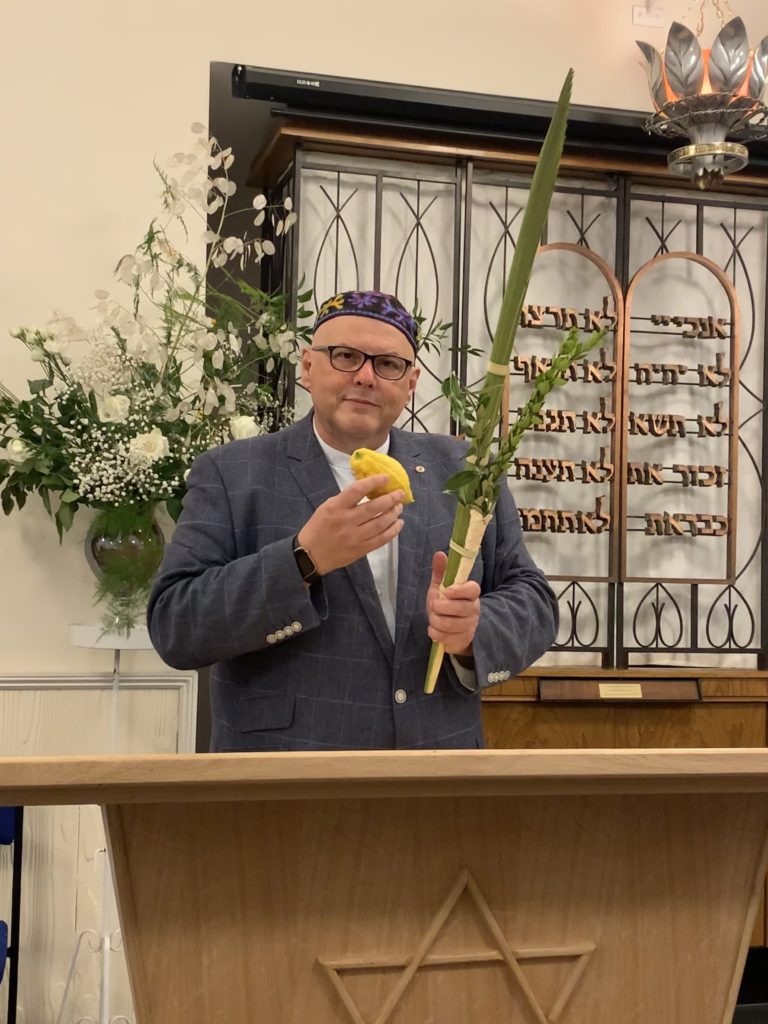
In our tradition, Sukkot is also called z’man simhateinu, “Our time to rejoice”. Maybe we can rejoice because the fast of Yom Kippur is over and we can carry on with our lives, knowing that we have been forgiven. For our ancestors, Sukkot would mark the end of the agricultural year, and with barns filled with grain, oil, nuts and dried fruits to keep them through the winter months, they could celebrate another year of hard work.
But there is more than just a material relief of having done the work and being rewarded. We are supposed to leave the security of our homes and spend a week under the Sukkah, a temporary accommodation that does not entirely protect against the elements. The Sukkah signifies the impermanence of life and the fragility of our constructions.
To add to this unease, our tradition suggests we read the Book of Ecclesiastes during the week of Sukkot. It starts with a well-known verse, “utter futility, says Kohelet, utter futility! All is futile”. The Hebrew word hevel means mist, something we can’t grasp. Some translate it as “meaningless”. Everything is meaningless. Why do we read such a misery book when we are asked to rejoice?
In Celebrating Life, Rabbi Jonathan Sacks has a wonderful insight on this book. He says,
“Poor Kohelet. He was the man who wrote Ecclesiastes. Tradition has long identified him with King Solomon. He was, we recall, the man who had it all and discovered it was not enough. Palaces, gardens, wives, wealth – all promised happiness. None delivered. The more wealth, the more worry. The more knowledge, the more weariness of spirit. In the end all he could say was, ‘Meaningless, meaningless, everything is meaningless.’
We recognize Kohelet. He is the billionaire with the private jet, the apartment on Fifth Avenue, the holiday home in Cap Ferrat, the Armani suits and the expensive wife, who discovers that it all adds up to less than the sum of the parts. The route to happiness turns out to be harder than taking the waiting out of wanting.
Kohelet forgot something that I discovered by chance… Someone had written to the [Lubavicher] Rebbe in a state of deep depression. The letter went something like this. ‘I would like the Rebbe’s help. I wake up each day sad and apprehensive. I can’t concentrate. I find it hard to pray. I keep the commandments, but I find no spiritual satisfaction. I go to the synagogue, but I feel alone. I begin to wonder what life is about. I need help.’
The Rebbe wrote a brilliant reply that did not use a single word. All he did was this: he circled the first word of every sentence and sent the letter back. The disciple understood. The Rebbe had answered his question and set him on the path to recovery. The ringed word was ‘I’.
It is hard to translate a biblical text from classical Hebrew into contemporary English and still preserve the nuances of the original, but Kohelet’s problem was the same as that of the letter-writer above. ‘I built for myself… I planted for myself… I acquired for myself…’ In Hebrew the insistence on the first-person singular is striking, reiterated, discordant. There is no other book in the Bible that uses the word ‘I” so many times as do those first chapters of Ecclesiastes. Kohelet’s problem was that he kept thinking about himself. It made him rich, powerful, a great success. As for happiness, though, he did not have a chance. Happiness lives in the realm called Not-I.” (Celebrating Life, pg.47-8)
A Mussar teacher, Rabbi Eliyahu Eliezer Dessler wrote, “there is no happiness in the world of material; there is only happiness in spiritual concerns”. As explained by these three Rabbis and teachers, there is no happiness in a self-centred world. Our happiness is created when we serve a higher cause, when we assist others, when we participate in something bigger than our small ego, when we go beyond ourselves. “Happiness lives in the realm called Not-I”, says Rabbi Sacks. We could add, happiness lives in the realm called “Us” as a community and as a whole humankind. That is why our individual fragility is revealed by the Sukkah.
Impermanence is an important feature of life. It is frightening, because we know that everything changes all the time, but it is also liberating once we’ve gotten rid of the illusion of grandeur and limitlessness. There is a profound meaning, even sheer beauty, in our vulnerability. It is what makes us human.


